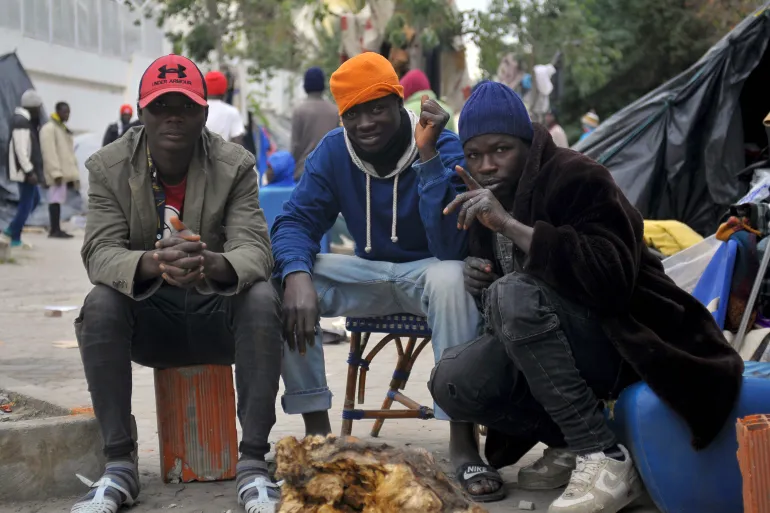Tunisian president urges return of African migrants amid economic strain

President Kais Saied of Tunisia has called for a rapid acceleration of voluntary repatriation for irregular African migrants in light of Tunisia’s ongoing economic crisis.
His remarks came during a National Security Council meeting on Monday evening, where he highlighted the increasingly tense situation in the Sfax region’s cities of Jebniana and Al-Amra, which host a substantial number of irregular migrants.
Saied emphasized Tunisia’s commitment to humanitarian support for migrants, underscoring the nation’s sustained efforts despite mounting financial pressures.
He noted that Tunisia, much like other nations in the Global South, suffers under what he described as an “unjust global economic system.”
While reaffirming Tunisia’s dedication to humanitarian values, Saied cautioned that the country can no longer sustain its support for migrants indefinitely.
Calling for intensified diplomatic action, Saied urged a swift process to facilitate the return of migrants to their countries of origin, expressing frustration with international organizations that, according to him, have limited their involvement to “making statements” without tangible support.
Addressing another critical issue, President Saied criticized the rising food prices in Tunisia and pointed to monopolistic practices and speculation as major causes.
He highlighted that “parallel markets” have taken over distribution routes, allowing them to control prices.
Saied described these routes as a “red line” and stressed that the dismantling of these criminal networks was essential to meet the needs of Tunisian citizens.
In a notably sharper tone, Saied condemned “lobbies” he accused of manipulating public institutions and influencing national affairs.
He cited a recent incident at Tunis-Carthage International Airport, where a truck collided with a civilian aircraft, causing flight delays and substantial damages.
The president called for accountability, stating that those responsible must be held to account, and emphasized the need to dismantle the influence of powerful lobbies he believes are undermining public institutions and negatively impacting Tunisia’s economy.
About The Author
dailymailafric
I am an avid African news observer, and an active member of Daily Mail Africa.
I’m Passionate about staying informed on diverse topics across the continent,
I actively contribute to publishing on political, economic and cultural developments in Africa.



